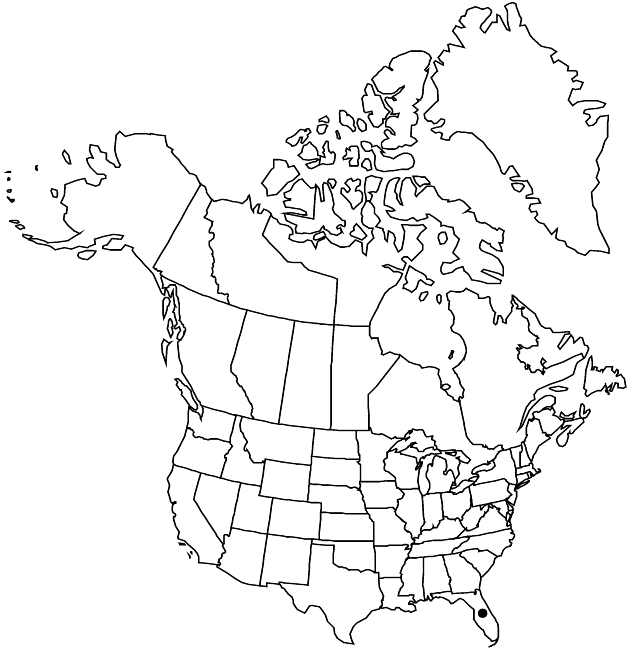Difference between revisions of "Chrysopsis linearifolia subsp. dressii"
Brittonia 30: 494. 1978.
FNA>Volume Importer |
imported>Volume Importer |
||
| (6 intermediate revisions by 2 users not shown) | |||
| Line 8: | Line 8: | ||
}} | }} | ||
|common_names=Dress’s goldenaster | |common_names=Dress’s goldenaster | ||
| + | |special_status={{Treatment/ID/Special_status | ||
| + | |code=E | ||
| + | |label=Endemic | ||
| + | }} | ||
|basionyms= | |basionyms= | ||
|synonyms= | |synonyms= | ||
| Line 24: | Line 28: | ||
|elevation=10–50 m | |elevation=10–50 m | ||
|distribution=Fla. | |distribution=Fla. | ||
| − | |discussion=<p>Subspecies dressii is known from the central half and west of the peninsula. The report of the subspecies from southern Bay County (J. C. Semple 1981) was based on a few plants that were subsequently determined to be a hybrid swarm involving subsp. linearifolia and another species. This subspecies might deserve species status and more investigation is warranted. Plants of subsp. dressii could be confused with sparsely hairy forms of Chrysopsis subulata, which differ in having twisted, subulate phyllaries.</p> | + | |discussion=<p>Subspecies dressii is known from the central half and west of the peninsula. The report of the subspecies from southern Bay County (J. C. Semple 1981) was based on a few plants that were subsequently determined to be a hybrid swarm involving <i></i>subsp.<i> linearifolia</i> and another species. This subspecies might deserve species status and more investigation is warranted. Plants of <i></i>subsp.<i> dressii</i> could be confused with sparsely hairy forms of <i>Chrysopsis subulata</i>, which differ in having twisted, subulate phyllaries.</p> |
|tables= | |tables= | ||
|references= | |references= | ||
| Line 33: | Line 37: | ||
-->{{#Taxon: | -->{{#Taxon: | ||
name=Chrysopsis linearifolia subsp. dressii | name=Chrysopsis linearifolia subsp. dressii | ||
| − | |||
|authority=Semple | |authority=Semple | ||
|rank=subspecies | |rank=subspecies | ||
| Line 47: | Line 50: | ||
|publication title=Brittonia | |publication title=Brittonia | ||
|publication year=1978 | |publication year=1978 | ||
| − | |special status= | + | |special status=Endemic |
| − | |source xml=https:// | + | |source xml=https://bitbucket.org/aafc-mbb/fna-data-curation/src/2e0870ddd59836b60bcf96646a41e87ea5a5943a/coarse_grained_fna_xml/V19-20-21/V20_485.xml |
|tribe=Asteraceae tribe Astereae | |tribe=Asteraceae tribe Astereae | ||
|genus=Chrysopsis | |genus=Chrysopsis | ||
Latest revision as of 20:03, 5 November 2020
Stems green to dark purple, 30–80 cm. Leaves less numerous (to 100 on tall plants), linear to linear-lanceolate or elliptic, sometimes very undulate, strongly twisted. Heads 4–30(–50) in open corymbiform arrays.
Phenology: Flowering Sep–Nov.
Habitat: Open sandy areas in oak pine woods, fields, roadsides
Elevation: 10–50 m
Discussion
Subspecies dressii is known from the central half and west of the peninsula. The report of the subspecies from southern Bay County (J. C. Semple 1981) was based on a few plants that were subsequently determined to be a hybrid swarm involving subsp. linearifolia and another species. This subspecies might deserve species status and more investigation is warranted. Plants of subsp. dressii could be confused with sparsely hairy forms of Chrysopsis subulata, which differ in having twisted, subulate phyllaries.
Selected References
None.
